In the ever-evolving landscape of broadcasting, certain individuals stand out not only for their contributions to the industry but also for their dedication to nurturing new talent. Our upcoming interview dives into the life and experiences of the radio veteran, Hardeep Singh Chandpuri who has not only graced the airwaves with his expertise but has also played a pivotal role in shaping the careers of numerous successful radio jockeys. What sets this luminary apart is not just his decades of experience, but his unwavering commitment to supporting young artists and fostering fresh voices in the field.
Beyond the traditional realm of broadcasting, Hardeep has embarked on various innovative ventures that have left a lasting impact on the industry. Among his notable achievements is the launch of the region’s first English radio channel of its kind, an endeavor that has reshaped the way listeners engage with content.
Join us as we delve into the remarkable story of Hardeep Singh Chandpuri whose influence extends far beyond the airwaves, as he continues to champion emerging talent and redefine the boundaries of radio broadcasting.
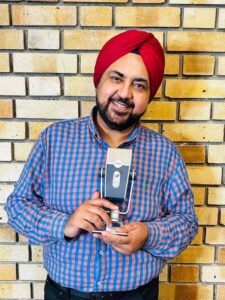
Can you start by telling us about your background and how you got started in the radio industry?
I got exposed to FM Radio while I was in Class 11. There was an audio tape that came by accident in the baggage of my uncle who was returning from the USA. I heard it and it was the American Top 40 hosted by the great Casey Kasem. I was hooked on it right from the word go. I mean I thought it would be so much fun talking about music stars and their music, weather, traffic and even getting paid for it. I was simply knocked out and knew instantly that this was my calling.
You’ve been in the radio industry for so many years now. How have you seen the radio landscape evolve over the years, and what are some key changes you’ve witnessed?
First of all, a special mention goes out to All India Radio (AIR) which has always been the torchbearer for our nation, and we are indebted to it for the entertainment it has provided us over the years. The entry of the private FM Radio stations changed the ball game altogether. Radio became more personal. The chatter of the jocks was more identifiable by the common man, and they could relate to what was being aired. From being formal to informal was the biggest change that drove the industry to where it is today. Plus, the launch of many community radio stations also fuelled the radio landscape and what we have today is a sum total of all the above.
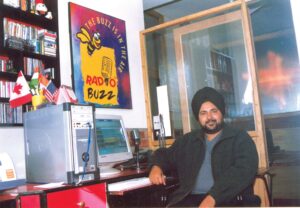
Supporting young talent and writers is a noble endeavour. Could you share some experiences or stories about how you’ve contributed to nurturing new voices in the radio industry?
I started Radio Buzz along with my colleague Charanjit Singh in 2002, when private radio was not even on the scene in north India. We bought time slots on AIR Chandigarh where we featured our own content and got an amazing response from our listeners. My studio was a small room right above my garage in my home. I’d used to single handedly script, record, edit and master the radio shows for AIR, Chandigarh. And burn them onto a CD and deliver them to the Station. After my stints abroad, I knew there was a space for training voice talent and started the Academy of Broadcasting in 2003. With God’s Grace, we have trained many students over the years including RJ Meenakshi, RJ ‘Golmaal’ Gagan, RJ Jassi, RJ Guri, RJ Rohit, RJ Diksha, I mean the list is endless. It’s a heartening experience when you hear them ‘On-Air’ and celebrate whatever they have achieved through their hard work and dedication. For me, it’s a sense of satisfaction of sharing my skills that I have gathered during my experiences in Australia, USA and Canada.
Your recent venture is quite ground-breaking – the first English radio channel of its kind in the region. Can you tell us more about what inspired you to start this channel and the challenges you faced in bringing it to life?
During my Radio Buzz days, we used to play English songs on a regular basis. We used to have shows like ‘Retro Sunday’, ‘Flashback’, ‘Catch the Buzz’, ‘Just For You’, which were all based on English music. The kind of song requests we used to get, plus the regular feedback motivated us to feature more English music in our other slots too. I knew the market was there. When we launched 90.8 Capital FM, Chandigarh in May of this year, we did not want to sound like any other regular station, so we placed ourselves into the niche category and now Capital plays only English music across all genres. The biggest challenge, I guess, was only from a couple of people who found it hard to believe a station that plays only English music would be able to sustain itself. Luckily, despite the naysayers we have sustained well and the love from our listeners is simply overwhelming.
Establishing the first English radio channel in the region must have been a significant undertaking. What unique content or approach does your channel bring to the listeners that sets it apart from other radio stations?
The heartbeat of any radio station is the music and content that resonates with the listeners. We went by the premise that we will play what the listeners want. We curated music across all genres. So if we have Def Leppard playing their rock anthems on one side, then we have Glen Medeiros crooning ‘Nothing’s Gonna Change My Love For You’. If we have MC Hammer rapping all the way to glory, then we have Elle Goulding belting out her mega hits. I mean we call it the station for your yesterday, tomorrow, and today. The most amazing part is that our listeners have taken a kind of ownership of the station; they feel a huge part of it. They send pictures sitting in their homes or cars listening to the Capital, and also share videos of the station playing while driving. If there is ‘Lady in Red’ by Chris De Burgh playing then a lady while driving sends a message saying that it’s amazing to hear the song, as today I am wearing a red dress. If it’s raining and suddenly ‘Sunshine on a Rainy Day’ by Zoe comes on then also they reach out. They also send song requests and many call us the ‘Friendly Neighbourhood Radio Station that listens to us’. It feels so nice that sometimes their feedback and love brings out a tear or two in my eyes and of my team.
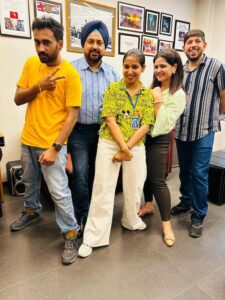
Building a radio channel from scratch requires a lot of teamwork and dedication. Can you talk about the team behind your English radio channel and how they’ve contributed to its success?
I personally believe that it’s only a well-knit team that makes an organisation. Luckily, I have been blessed with an amazing team who have worked with dedication to create content that is loved by all. The team is helmed by our Station Head RJ Geet who is supported by RJ Jugni (Smriti), RJ Chatty, RJ Navita Sandhu, RJ Ritika Singh, RJ Seema Sharma plus we are in the process of launching more ‘On-Air’ talent soon. The ‘voice’ team is ably supported by our Production Head Nikhil Sharma who with his experience keeps the station running seamlessly. The creative promos, teasers and content packaging is done by Sumit Sharma while Amarjeeet Dhiman and Ajay Das keep the back-end running smoothly. It’s a dream team and I am so proud of whatever they are doing. Our motto is “Striving Together, Achieving Beyond.”
What advice would you give to young individuals aspiring to join the radio industry, especially considering the changing media landscape and the rise of digital platforms?
Radio is both simple and complex at the same time. Simple in the sense, that anyone with a clear voice can do well, but the complex part is to mould the voice with diction, pronunciation, voice modulation, knowledge of music, content ideas and so on and so forth. But, now we have people who can guide them and train them. I self-taught myself because there was no one to teach me. I used to drive 48 miles from Mount Holly (USA) to Ewing for a one-hour class paying $70 for it. This helped me a lot. In Australia, I remember working for free in a ‘White’ dominated radio station and the work allocated to me was the boring music cataloguing work, but still I hung in there just to get the feel as to how a radio station operates. My learning curve was rather steep. I made mistakes and still I do, but now the youth is lucky to have people who can train them to get into a rewarding career in radio. The youth who wish to make a mark in this field need to have Patience, Passion for Communication, Curiosity, Creativity, Adaptability and most important according to me an ability to manage the fame and adulation that comes in abundance in this profession. I have seen many talents go to waste because they could not manage the fame and glamour that came along and lost the way in the bargain.
What is your mantra in life?
I wrote these lines which sum up my whole journey ‘Always Dream an Impossible Dream to Make your Dream Possible’.

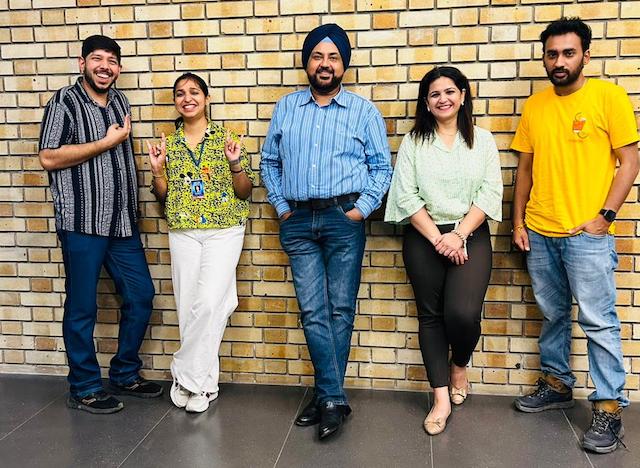

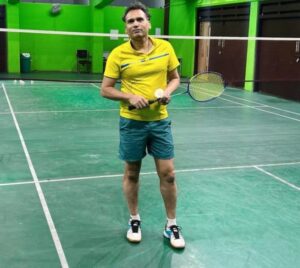



Comments are closed.